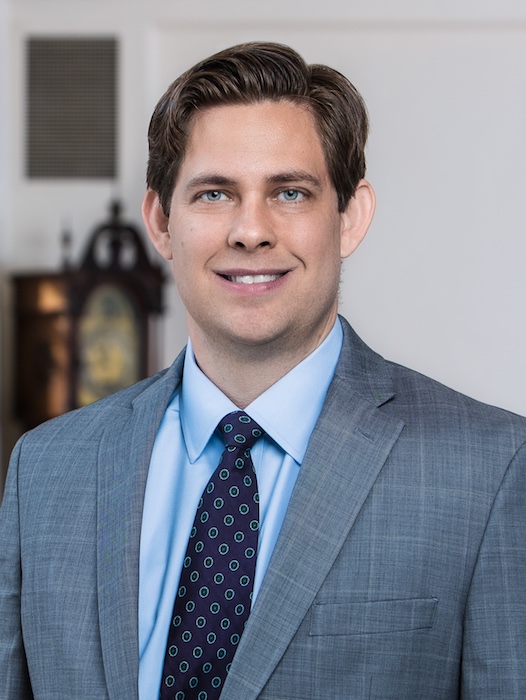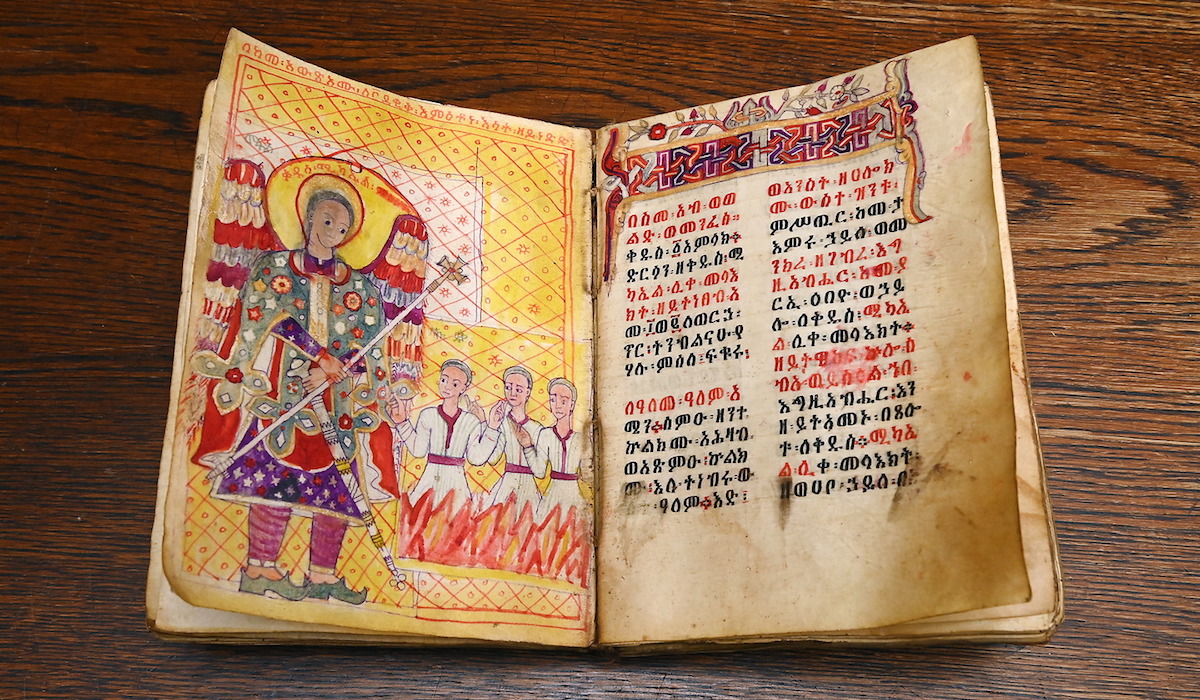

Catholic University Provost Aaron Dominguez has named Aaron Butts, associate professor in the Department of Semitic and Egyptian Languages and Literatures, as the Andrew W. Mellon Chair of Early Christian Studies.
This endowed chair was established in 1982 with generous support from the Andrew W. Mellon Foundation along with a gift by an anonymous donor. The distinguished scholar who holds the chair supports the Center for the Study of Early Christianity in its mission to foster interdisciplinary approaches to the study of early Christianity across the University. Butts succeeds the late Philip Rousseau, who held the Mellon Chair from 1998 to 2019.
“I was delighted to learn that Dr. Aaron Butts has been appointed to the Mellon Chair of Early Christian Studies,” Peter Brown, Philip and Beulah Rollins Professor of History, emeritus, at Princeton University, said in response to this appointment. “He is in every way a worthy successor to my former student and great friend, Philip Rousseau. He will bring to the post a unique command of the history and languages of the Christian East. His appointment widens yet further the outreach of the Catholic University to all Christian churches, and particularly to those whose distinctive traditions, inherited from the Early Church, still survive in Africa and the Middle East.” Brown is credited with creating the field of study referred to as “Late Antiquity” (250-800 A.D.), which is a period that Butts specializes in.
Butts earned his Ph.D. from the University of Chicago in 2013 and joined Catholic University as an assistant professor in 2014. He received the Provost Young Faculty Scholar Award in 2017 and was promoted to associate professor with tenure in 2019. In addition to leading the graduate program on the Christian Near East, he is director of the Institute of Christian Oriental Research (ICOR), which is among the leading centers for this field world-wide. Included among ICOR’s extensive holdings is one of the largest collections of Ethiopian manuscripts in North America, which was donated by Gerald and Barbara Weiner in 2016.

Two pages from an Ethiopic Homiliary in honor of the Archangel Michael, created between 1916-1930. The illumination on the left depicts the archangel Michael rescuing the three youths from the fire (Daniel 3). This Ethiopic manuscript, Weiner Codex 334, was donated to Catholic University by Gerald and Barbara Weiner in 2016.
“The Catholic University of America has a long and storied tradition of excellence in Early Christian Studies as well as in our distinctive Department of Semitics,” said Thomas Smith, dean of the School of Arts and Sciences. “Dr. Butts is a scholar of deep learning and international renown whose work has been an integral part of that excellence since he joined our community in 2014. This appointment signals our ongoing commitment to the study of our shared Christian heritage, an essential dimension of our mission and identity.”
Butts’ research and teaching are focused on the languages, literatures, and history of Christianity in the Near East — especially Arabic, Ethiopic, and Syriac — from Late Antiquity through the Medieval Period. Butts has published more than 100 items, including 10 volumes and 30 peer-reviewed journal articles. His research has been supported by membership at the Institute for Advanced Study (Princeton, NJ) and by an Alexander von Humboldt Research Fellowship for Experienced Researchers (Germany). He has delivered invited lectures widely across the United States as well as internationally, including in Austria, Canada, Ethiopia, France, Germany, Israel, Italy, Switzerland, and the United Kingdom.
“It is a great honor to be appointed Mellon Chair of Early Christian Studies,” Butts commented. “I am thrilled to work in this new role, together with my colleagues across the University, to build upon the long and venerable tradition of studying Early Christianity at The Catholic University of America. As a specialist of the Christian Near East, I am particularly excited by the transformative impact this appointment promises to have on the study of Arabic, Armenian, Coptic, Ethiopic, Georgian, and Syriac Christianity.”